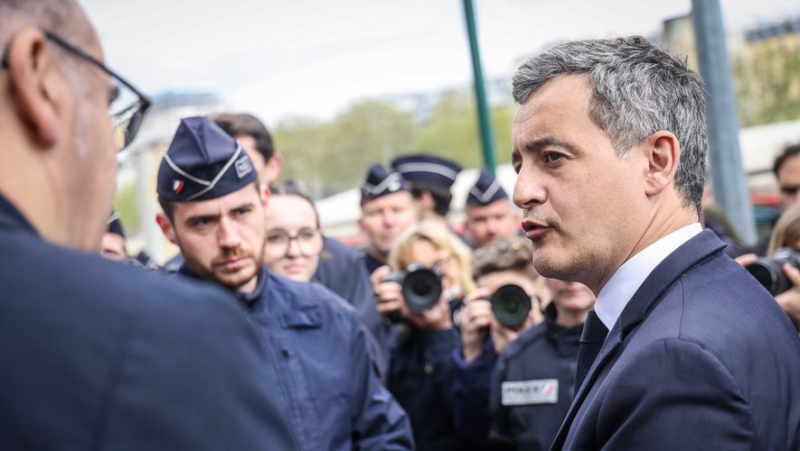Buildings burned, police officers and gendarmes injured… why New Caledonia is shaken by riots

Gérald Darmanin annonce une proposition de rencontre à Paris. MAXPPP – Luc Nobout
L’archipel français s’embrase, alors que les indépendantistes s’opposent au projet de réforme de la Constitution. Un couvre-feu a été décrété sur place.
A curfew was introduced on Tuesday in Nouméa, but the public channel La Première reported new "fires, blockades and looting" in New Caledonia.
Riots linked to the examination at the National Assembly, in Paris, of a draft reform of the Constitution likely to expand the electoral body of the rsquo;island, which is opposed by the separatists.
The Minister of the Interior, Gérald Darmanin, reported an initial assessment of 52 police officers and gendarmes injured and 82 people arrested over the last two days and announced the & rsquo;sending gendarmerie reinforcements to the site.
Buildings and vehicles burned
According to Louis Le Franc, High Commissioner of the Republic in New Caledonia, 50 businesses and businesses and 200 vehicles were burned. The High Commission announced the ban on the sale of alcohol and the transport and carrying of weapons.
Nouméa airport was closed until Thursday.
"In New Caledonia, we know the heavy toll of violence, we know that it resolves nothing, that it leads to nothing. The violence is neither justifiable nor tolerable", Prime Minister Gabriel Attal reacted on Tuesday during the question session to the government at the National Assembly.
"A major democratic issue"
The head of government rejected calls from the left-wing opposition to suspend this “thaw” of the electorate, "a major democratic issue requested by the Council of State to allow the next provincial elections to be held", a he explained.
Gabriel Attal, however, confirmed that Emmanuel Macron would not convene the Congress, necessary in the event of constitutional revision, once the text has been voted on and called for seizing & quot;the outstretched hand of dialogue", in order to reach a broader political agreement.
"The President and the Prime Minister will write to all the Caledonian parties to invite them in the coming days to Paris », in order to & ;laquo; find a peaceful global agreement", announced Gérald Darmanin in front of the national representation.
A tormented story
Discussions on the future of the island began in 1988, after a decade of conflict and separatist violence. They culminated with the hostage-taking in Ouvéa, during which 19 Kanaks and two soldiers were killed on May 4 and 5, 1988, then, a year later, with the assassination of independence leader Jean-Marie Tjibaou and his right-hand man in the FLNKS Yéwéné Yéwéné.
A first step was taken in 1988 with the Matignon-Oudinot agreements. Signed by the independence parties, the loyalist parties and the French state, they created three provinces and marked official recognition of the Kanak people.
Ten years later, the Nouméa Agreement made the archipelago an overseas community with a special status and framed future consultations. Since then, only natives and long-time residents can take part in provincial elections and referendums, in order to preserve the balance between the Kanak population – indigenous to the archipelago – and arrivals from mainland France.
"Our isolated people"
But the proportion of voters deprived of their vote has continued to grow and the Minister of the Interior wishes to allow people who have been present for at least ten years on the ballot. island to integrate the electoral lists. The separatists fear that this will further reduce the weight of the indigenous Kanak people on the island.
"The thaw of the electoral body leads our people to be isolated in their own country", points out Daniel Wéa, president of the Young Kanak Movement in France.
Three self-determination referendums have been held since 1998, all resulting in a victory for “no” to independence, even if the last one was boycotted by supporters of secession, who notably denounced its organization in the midst of a health crisis.




